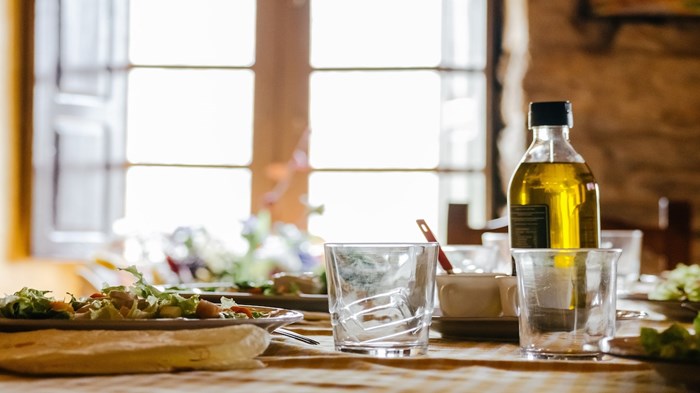What is Saving Your Life?

“What is saving your life right now?” Barbara Brown Taylor has made a practice of asking this question of people. This is what she says about it in her book, Leaving Church.
Salvation is so much more than many of its proponents would have us believe. In the Bible, human beings experience God’s salvation when peace ends war, when food follows famine, when health supplants sickness and freedom trumps oppression. Salvation is a word for the divine spaciousness that comes to human beings in all the tight places where their lives are at risk, regardless of how they got there or whether they know God’s name. Sometimes it comes as an extended human hand and sometimes as a bolt from the blue, but either way it opens a door in what looked for all the world like a wall. This is the way of life, and God alone knows how it works (pp. 225-226).
I answer this question, “What is Saving Your Life Right Now?” in a sermon coming up by telling a story that is found in 2 Kings 4:1-7. “
One day the widow of a member of the group of prophets came to Elisha and cried out, “My husband who served you is dead, and you know how he feared the Lord. But now a creditor has come, threatening to take my two sons as slaves.” “What can I do to help you?” Elisha asked. “Tell me, what do you have in the house? “Nothing at all, except a flask of olive oil,” she replied. And Elisha said, “Borrow as many empty jars as you can from your friends and neighbors. Then go into your house with your sons and shut the door behind you. Pour olive oil from your flask into the jars, setting each one aside when it is filled.” So she did as she was told. Her sons kept bringing jars to her, and she filled one after another. Soon every container was full to the brim! “Bring me another jar,” she said to one of her sons. “There aren’t any more!” he told her. And then the olive oil stopped flowing. When she told the man of God what had happened, he said to her, “Now sell the olive oil and pay your debts, and you and your sons can live on what is left over.
This story oscillates between the two extremes of empty and full. The widow is empty. She has nothing. She is the epitome of someone who has found themselves in a “tight place,” as Barbara Brown Taylor calls it. She is poor, in debt and now she faces the loss of her most treasured possessions, her children. She has an empty house. She even tells Elisha that she has nothing, then she says “except a jar of olive oil.” Then at Elisha’s curious instructions she collects empty jars. She is empty, desperate and in great need.
Many of us are facing our own form of desperation today. Some of us are facing unemployment, sickness, the death of loved ones. Many of us feel desperate because we don’t know how to answer questions such as, do we send our children to school or not? Do we continue to work or stay home with them? We are not sure how to proceed in caring for aging and ill parents during a health pandemic. How do we make future decision about anything? Many of us, like the widow, are desperate and empty, at the end of our resources.
There is good news for those of us who are desperate and empty. The miracle of the story is that the emptiness is miraculously transformed to fullness. The widow takes the meager amount of oil that she has and pours it into the empty jars until they are full (to the brim!). She fills and fills and fills until there are no more jars. There is such an abundance that she uses the full jars to pay off her debt and she still has money left over to provide for her family! With this miracle, Elisha (God through him!) saves her. The financial resources gained from the oil save her children from slavery, save her from poverty and despair, and ultimately save her from death.
For those of us who are desperate, empty and alone, this story invites us to follow the example of the widow and to find salvation as Taylor defines it: the “divine spaciousness” that comes to us “in all the tight places.” The widow points us to the God who “opens a door in what looks like a wall.” God alone is the one who takes empty jars and fill them to overflowing.
Jesus Creed is a part of CT's
Blog Forum. Support the work of CT.
Subscribe and get one year free.
The views of the blogger do not necessarily reflect those of Christianity Today.


















